Barsoom or Bust!
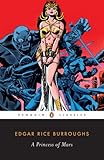 Don’t be fooled by the title. This isn’t an article about sending a manned expedition to Mars (however much I’d love to see that happen). It’s about a collection of science fiction tales which got me interested in the red planet in the first place– not as a possible destination point for the human race, but (what is perhaps far more important) as an embarkation point for the human imagination.
Don’t be fooled by the title. This isn’t an article about sending a manned expedition to Mars (however much I’d love to see that happen). It’s about a collection of science fiction tales which got me interested in the red planet in the first place– not as a possible destination point for the human race, but (what is perhaps far more important) as an embarkation point for the human imagination.
Earlier this year I came across an article (this one, in fact) announcing the start of production of Pixar/Disney’s John Carter of Mars, expected to hit theaters in 2012. My first thought was echoed nearly word-for-word in the article by its writer/director Andrew Stanton (Oscar-winning writer/director of WALL*E and Finding Nemo). He said, “I have been waiting my whole life to see the characters and worlds of John Carter of Mars realized on the big screen.” I, too, was aching to see one of my favorite science-fiction series brought to life on film.
My second thought was “Frak!”
This second thought came, paradoxically, from my first thought: I have been waiting my whole life to see John Carter on the big screen. And by “John Carter” I mean Edgar Rice Burroughs’ John Carter, not some Hollywood substitute. Take, for example, last year’s failed Asylum mockbuster, Princess of Mars, with Traci Lords as a blonde (?!) Dejah Thoris. It was apparently rushed out so as to scoop Pixar and Disney, and I’m just going to pretend it never happened.
Face it. The film industry doesn’t have the best track record when it comes to rendering science fiction novels accurately (two words: Starship Troopers). Sci-fi movie adaptations may be fun, and even “fine” films (two words: Blade Runner), but even the best such films are rarely faithful. About the only thing sci-fi movies usually share with the original text is the title. The same, I fear, holds true for Disney’s previous rendition of another Edgar Rice Burroughs adventure classic (one word: Tarzan).
Unfortunately, the things which for me make science fiction worth reading tend to get surgically removed from film versions long before they even have a chance to be left on the cutting-room floor, replaced by amazing special effects and non-stop action sequences. Some would say this failure really isn’t Hollywood’s fault. (Some wouldn’t even call it a failure.) We watch movies for different reasons than we read books, because there are some aspects of science fiction – the best aspects of science fiction in my opinion – which just don’t translate well onto the screen.
So just like I always do whenever I see an ad for a book-based movie (because I’m that kind of geek), to prepare for the premiere I sat down and reread the entire series of Burroughs’ Martian Tales. Back in the early Eighties when I first encountered them, these were in a twelve-volume Del Rey paperback set (which I still own), but now, thirty years later they all can be found in electronic form (with the first five freely available in the public domain). So I settled down with my new birthday Kindle for a long winter’s read, and soon rediscovered not only why I loved Burroughs and Barsoom in the first place, but also what I love best about science fiction in general.
Along the way I think I also figured out why a thousand moving pictures aren’t worth some of the best printed words in the genre.
Burroughs’ very first novel, A Princess of Mars, first appeared in 1912 as a six-part serial in All-Story Magazine titled “Under the Moons of Mars.” It recounts the tale of John Carter, a Confederate civil war soldier transported to Mars (called “Barsoom” by its inhabitants), where he falls in love with a princess, fights alien savages, and saves the doomed planet. (Excerpt from A Princess of Mars)

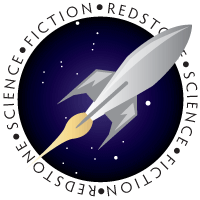
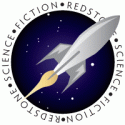



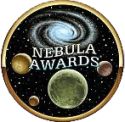
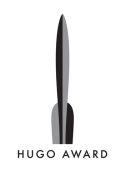
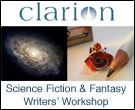


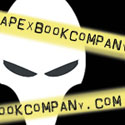
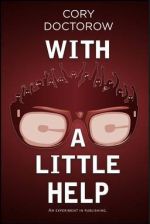
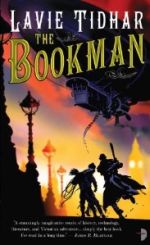
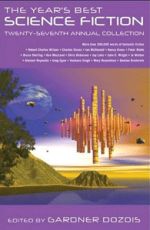


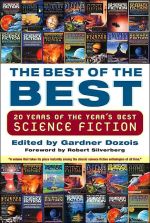
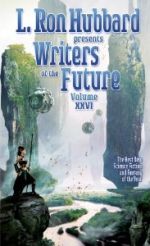

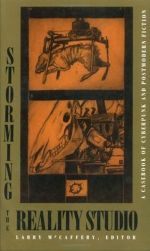



8 comments
[…] http://redstonesciencefiction.com/2010/05/cribbs-essay-june2010/ Posted by Blue Tyson 4.0, study, t non-fiction, z free sf Subscribe to RSS feed […]
[…] http://redstonesciencefiction.com/2010/05/cribbs-essay-june2010/ […]
[…] This post was mentioned on Twitter by Dan James, Jeff A. Jones. Jeff A. Jones said: Barsoom or Bust! | Redstone Science Fiction http://bit.ly/dAXKh6 […]
A well researched and thoughtfully written essay. Though I don’t think sci-fi novels are treated worse by Hollywood than other genres. In fact it’s my impression over the years that the best novels make the worst movies, and vice versa. E.g. Everything is Illuminated by J. S. Foer is one of the best books I’ve read and thumbs down the worst movie I’ve ever tired to watch. Is this because the better the novel, the more must be left out or changed to fit the movie?
Thanks, that was a very engaging and well-written essay.
Fantastic essay!
A wonderfully entertaining essay. Thank you. I was enthralled by the portions dealing with Burroughs and the John Carter books. In regard to making any headway towards resolving the book vs. movie debate, well, bonne chance, mon ami. To a dedicated reader the movie is always inferior, and to a dedicated movie buff it doesn’t matter.
[…] Barsoom or Bust!: The Lasting Influence of The Martian Tales by Henry Cribbs […]